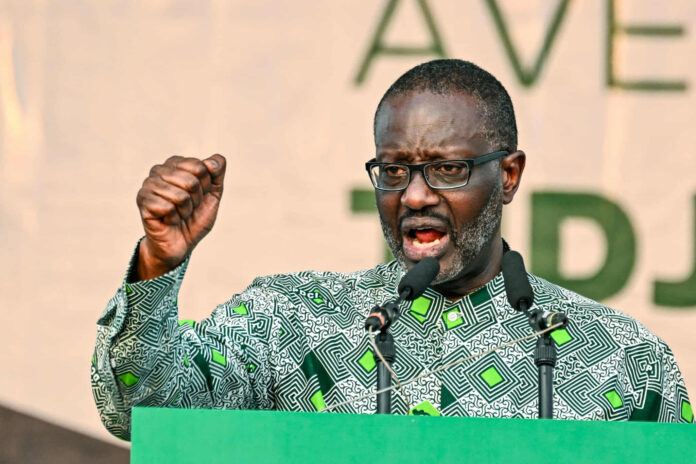Tensions are mounting in Côte d’Ivoire following the Constitutional Council’s decision to exclude former President Laurent Gbagbo from the upcoming presidential election, prompting sharp criticism from opposition leaders and raising concerns about the integrity of the electoral process.
In a press briefing held Tuesday, the African People’s Party–Côte d’Ivoire (PPA-CI), led by Gbagbo, denounced the Council’s ruling as politically motivated and legally flawed. Party spokesperson Habiba Touré outlined five key objections, alleging violations of both domestic constitutional provisions and international legal obligations.
At the center of the dispute is the Council’s dismissal of a request from the United Nations Human Rights Committee, which had urged Ivorian authorities to uphold Gbagbo’s political rights, including his eligibility to stand for office. Touré argued that the Council’s refusal to act on the UN directive contravenes Article 123 of the Ivorian Constitution, which grants international treaties precedence over national legislation.
The PPA-CI also challenged the Council’s interpretation of candidate eligibility. While the Council cited the Electoral Code’s requirement for candidates to be listed on the national electoral roll, Touré maintained that Article 55 of the Constitution—considered the supreme legal authority—does not impose such a condition.
Touré further criticized the Electoral Code itself, noting that it had been amended by presidential ordinance under incumbent President Alassane Ouattara, who is seeking a contentious fourth term. She accused the Council of applying inconsistent standards, particularly in its endorsement requirements.
Although Gbagbo reportedly secured endorsements in 27 regions—ten more than the legal minimum—his candidacy was rejected for failing to meet what the party described as an arbitrary threshold.
“This constitutes a clear breach of the principle of equality,” Touré said, adding that the Council’s handling of PPA-CI’s legal challenges reflected a “double standard.” One claim was dismissed as outside the Council’s jurisdiction, while another—questioning Ouattara’s eligibility—was deemed inadmissible due to Gbagbo’s disqualification.
The party also criticized the Council’s procedural conduct, arguing that it overstepped its mandate by publishing both the provisional and final candidate lists, a role constitutionally assigned to the Independent Electoral Commission (CEI) and the Council respectively.
Gbagbo’s exclusion follows the disqualification of another prominent opposition figure, Tidjane Thiam of the Democratic Party of Côte d’Ivoire (PDCI). Both leaders had formally contested Ouattara’s bid for a fourth term.
Their removal from the race has intensified scrutiny of the electoral process and stoked fears of political unrest ahead of the October vote.






















